Three Generations of Trumps: From German Village to US President's Chair
Categories: Celebrities | History | North America
By Pictolic https://mail.pictolic.com/article/three-generations-of-trumps-from-german-village-to-us-president39s-chair.htmlEvery family has its own stories that are passed down from one generation to the next. Some remember a hard-working grandfather, while others remember a grandmother who lived through hard times. But sometimes family stories become part of national history. Their dynasties are like a gripping novel with many chapters: poverty and rise, struggle and scandals, power and influence. A striking example is the Trump family. The path from a Bavarian village to the White House surpasses any fictional scenario.
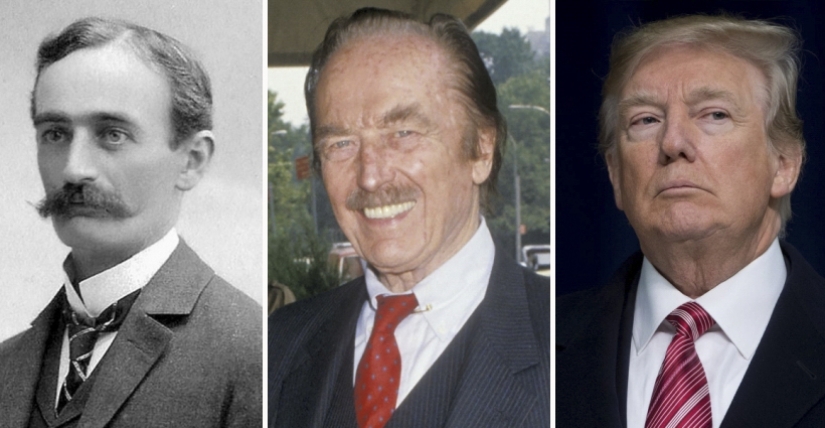
It all started back in 1885, when 16-year-old Friedrich Trump left his native village of Kallstadt in Bavaria. Life in the German outback did not promise much prospects, and young Friedrich understood this very well. In addition, he was not at all happy about serving in the army. That is why he decided to go to the New World for a better life. Having left a note for his mother, the young man boarded the transatlantic liner SS Eider, which soon set off for America.
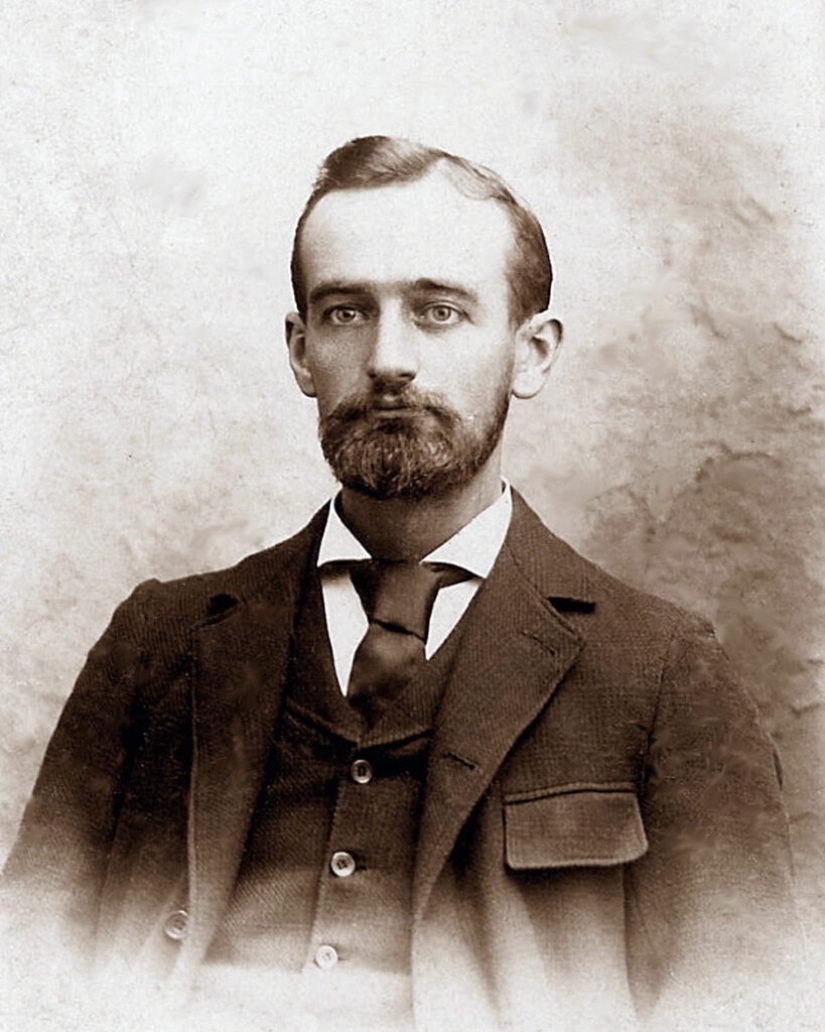
Twelve days later, Friedrich Trump landed on American soil in the port of New York. He had only a few marks in his pocket, but a strong desire to get rich was burning in his heart. He was determined to succeed at any cost. He was ready to move mountains to achieve it. The first years in America were not easy. Friedrich worked as a barber in New York, but soon realized that real money was not made from haircuts.
When the gold rush began in Alaska, an enterprising German went to the Klondike. True, he was looking for gold not in the ground, but in the pockets of prospectors. Friedrich Trump understood perfectly well: visitors need a place to stay. So he built a small hotel, which quickly became popular. Soon the "gold rush" captured the entire Western United States, and the demand for hotels began to grow rapidly.
Friedrich Trump moved to the town of Bennett, where the main streams of adventurers passed. There he opened a hotel and restaurant, which, thanks to gold miners, paid for themselves in a matter of days. However, soon the young entrepreneur noticed an alarming sign: nearby, in a small village, they were going to build a railroad. This threatened to take away all the customers from his establishment.
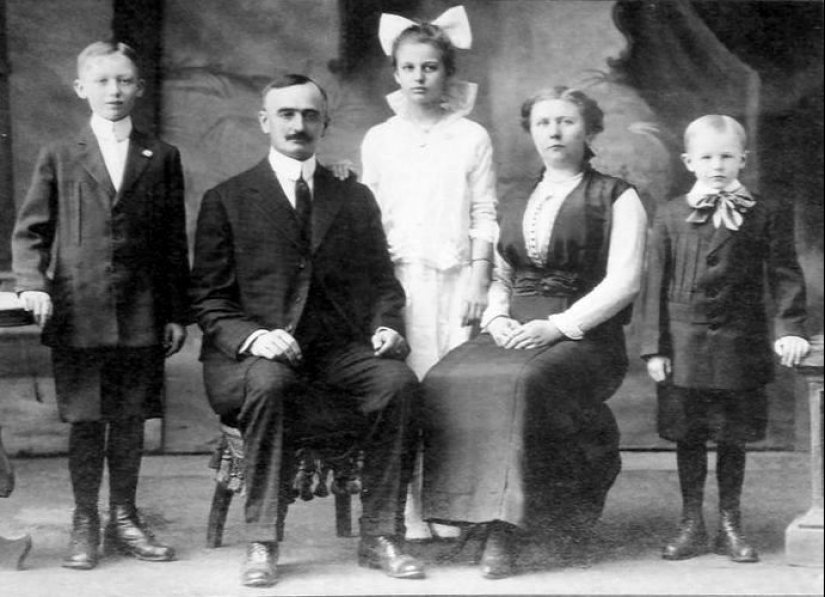
Then Friedrich decided to take a bold step. He dismantled his hotel, loaded it onto a barge and transported it downriver to where a railroad station was being built. When the first train arrived, Friedrich’s hotel was already welcoming guests. Tired prospectors could rest there, eat, drink and… have fun with the girls. Business flourished, and soon Trump had earned enough to return with his family to New York. There he married Elizabeth Christ and went into real estate, laying the foundation for the future family empire.
Next in the story was Fred Trump, Donald's father, born in 1905 in New York. He inherited his father's business acumen. When Friedrich died of Spanish flu in 1918, 13-year-old Fred was helping his mother run the family business.
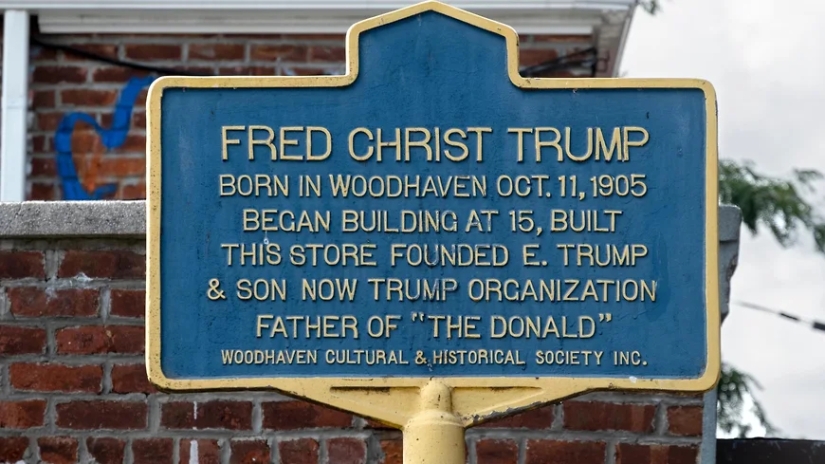
Fred Trump proved to be a worthy son of his father. Already in the 1920s, as a teenager, he began building houses in Brooklyn and Queens. He not only managed to save the family business, he turned it into a real construction empire. True, Fred often had to resort to deception. In the early 1930s, his construction company felt all the "delights" of the Great Depression. Companies in the United States went bankrupt and closed one after another. But where others saw only decline and hopelessness, Fred Trump saw prospects.
In 1934, Lehrenkraus & Co., a large construction company, filed for bankruptcy. Fred Trump went to a court hearing on the case. His attention was drawn to a special asset of the company: the mortgage servicing department. During the crisis, this department took over the properties of those who could not pay their loans.
Fred Trump decided to use a trick. In court, he introduced himself as a major real estate agent from Brooklyn, embellished his achievements, and appropriated the merits of others. Thanks to his confident behavior and ability to persuade, he managed to get what he wanted. The mortgage servicing department, along with the right to seize houses from bankrupt clients, passed into his hands.
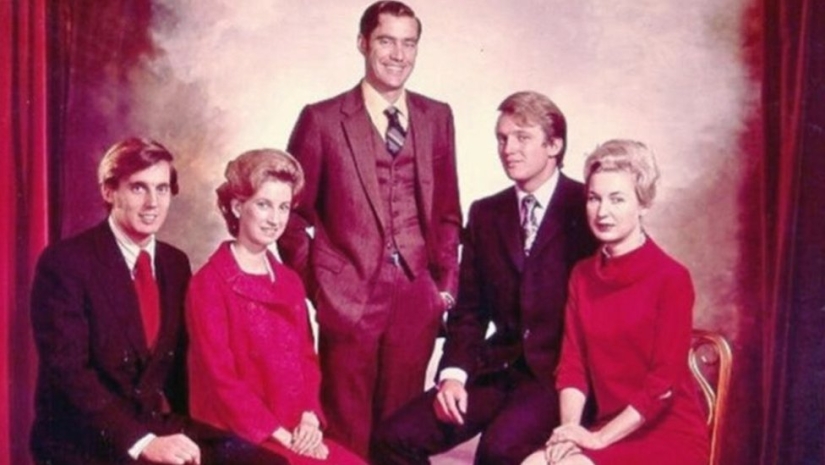
Fred was an innovator. He was one of the first to recognize that supermarkets were the future of retail, and he began building commercial real estate. His company, Elizabeth Trump & Son, grew rapidly, and by the mid-20th century, Fred owned thousands of residential properties in New York City. He not only built homes, but also created entire neighborhoods that still shape Brooklyn and Queens.
But Fred Trump's greatest achievement was his appointment to public office. He was put in charge of the Federal Housing Administration, created by Franklin Roosevelt in the 1930s. The agency was created specifically to provide housing for America's middle class. The agency distributed funds to the country's largest developers, who worked in different states.
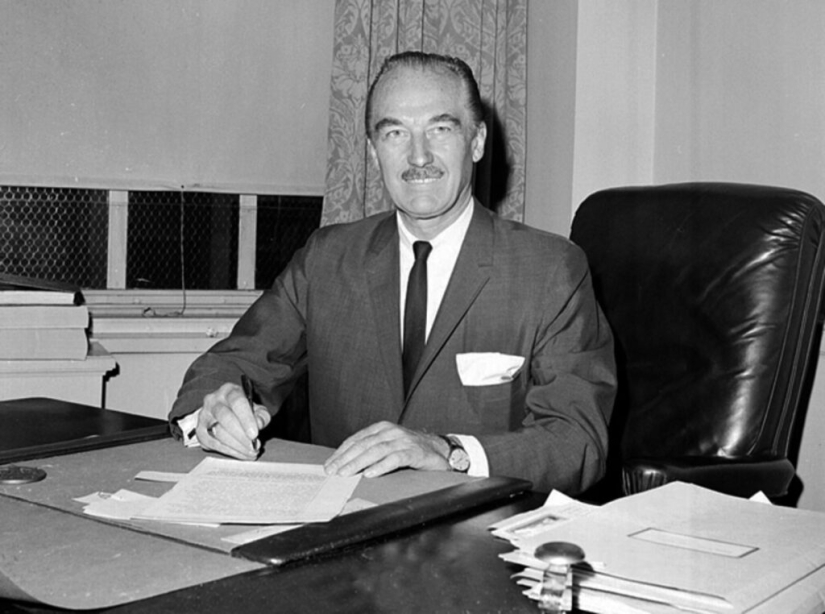
It's not hard to guess which company received the best funding. But Fred Trump deserves credit - his company always did the job to the highest possible standard and always left customers happy. This is how the family's business empire was born, and Donald Trump, a third-generation American, became its heir.
Donald Trump, born in 1946, had big goals from an early age. It wasn’t enough for him to simply continue his father’s business – he turned the Trump name into a global brand. The future billionaire spent his childhood in a luxurious mansion in the prestigious New York suburb of Jamaica Estates. His father ran a company that operated in millions, and the family nest was striking in its magnificence. The mansion with a colonnade and refined interiors had 23 rooms, and a huge garage was located in the spacious basement.
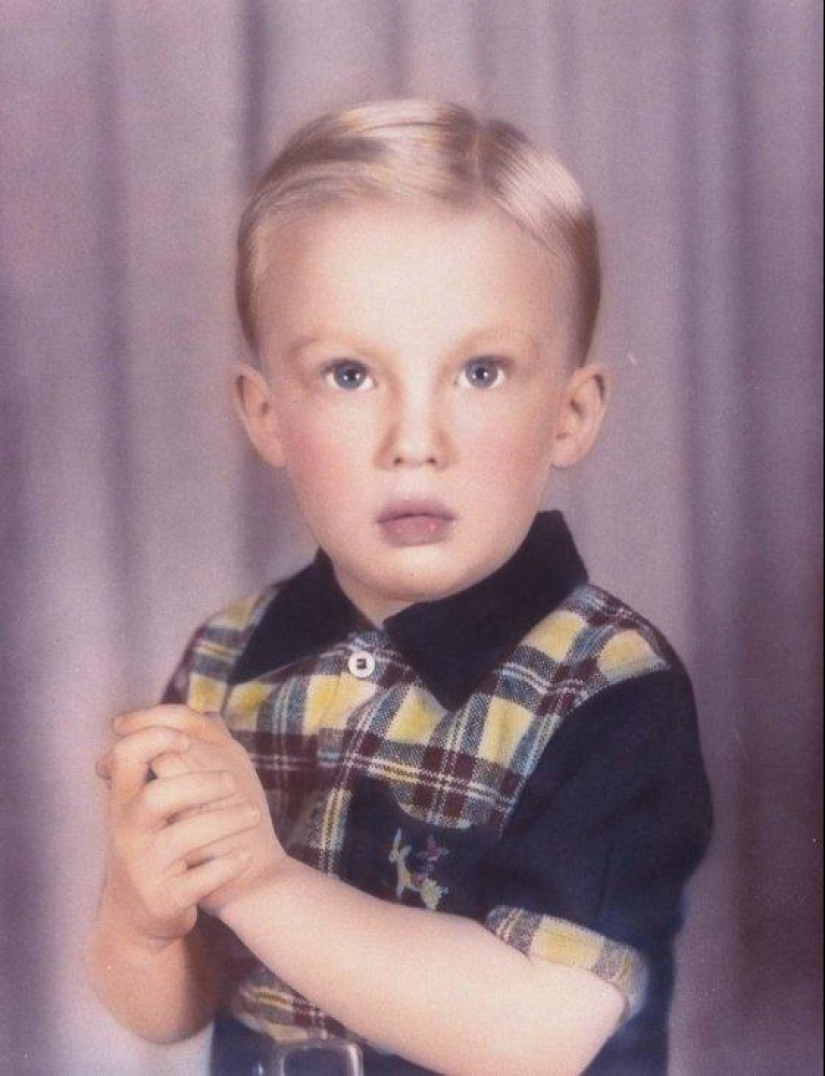
But Fred Trump was not one of those parents who let their children grow up in luxury and idleness. Having matured early himself, he instilled in his son from an early age that he would not live off his inheritance and should prepare for serious, responsible work. Writer and journalist Mark Fisher wrote about Trump Sr.'s attitude to his children in his book Secrets of Millionaires:
Donald Trump tried to live up to his father's expectations, although he was hardly a model son. Already in elementary school, he showed signs of rebellion. At school in Queens, he was known as a real hooligan. One of his schoolmates later said:
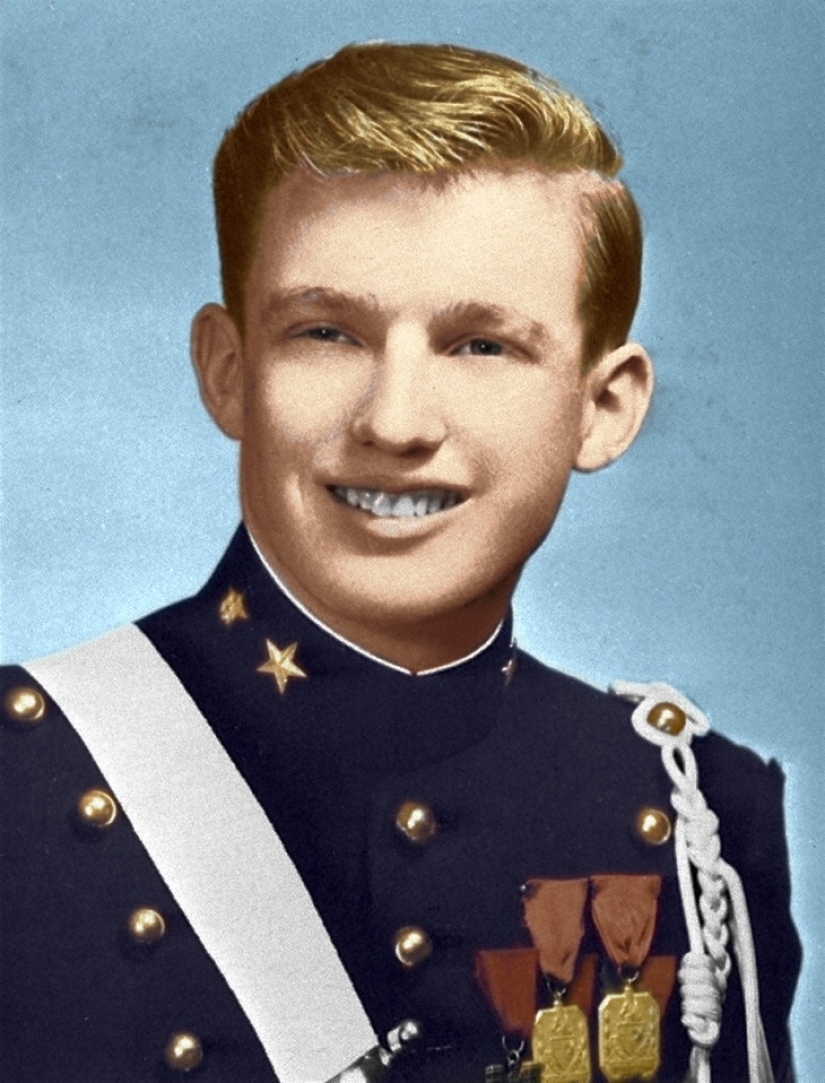
The school's complaints about his son's behavior had upset Fred Trump more than once. Finally, after the seventh grade, he decided to take a decisive step: he sent Donald to a private boarding school, the New York Military Academy. For the boy, who grew up in a luxurious mansion with servants, the harsh barracks life became a real test.
Donald's commander, World War II veteran Ted Dobias, did not tolerate pranks and was strict, as befits a military man. Under his leadership, young Trump quickly changed: from a prankster, he turned into one of the best cadets. Over time, he even began to like what was happening. The academy became a real school of life for him. It was there that the young heir to a construction business realized what distinguishes successful people from those who fail.
In 1963, Donald Trump returned to New York. He first enrolled at Fordham University and then transferred to the Wharton School of Business at the University of Pennsylvania. During his student years, he led a secluded life. Trump did not go to parties, avoided noisy companies, and led a healthy lifestyle. He had clear goals in life and did not want to waste time on useless trifles.
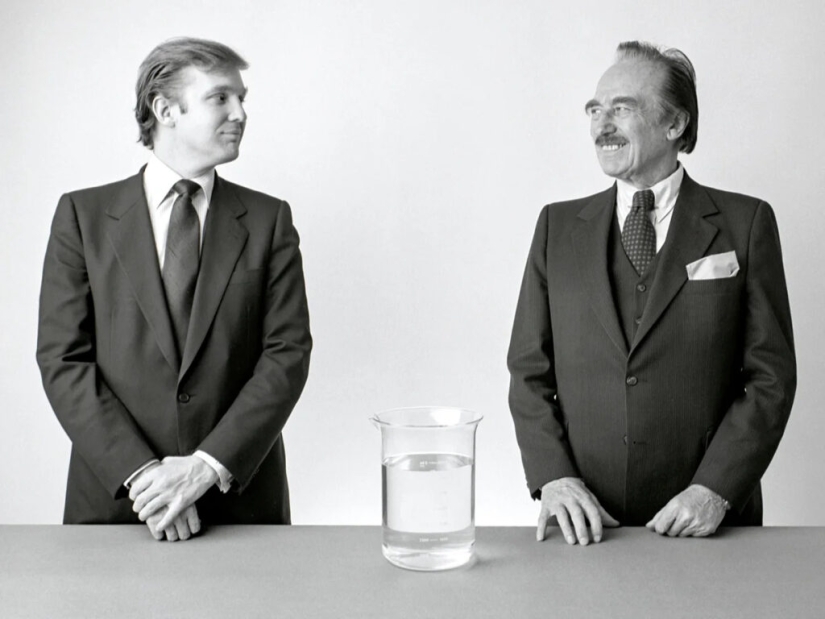
Donald Trump was not the first son in the family - the right to head the construction corporation initially belonged to his elder brother Freddie Trump Jr. However, his first business project failed, and Freddie, having given up, refused to continue the struggle. The father was disappointed in his eldest son and turned his attention to the younger one. Donald, with his determination and ambition, became the new hope of the family.
Donald Trump's first independent project was the renovation of a building on 42nd Street in Manhattan. The young man could not count on his father's money, so he needed not only to get a promising order, but also to find investors on his own. Then he did what his father had once done - he decided to resort to trickery.
Donald Trump showed up at the office of Penn Central, the company that owned the building, and said he had an agreement with Hyatt Hotels Corporation to build a new hotel. Of course, he had no agreement. Then Trump went to Hyatt Hotels Corporation and said he had an agreement with Penn Central. That's how he got the property.
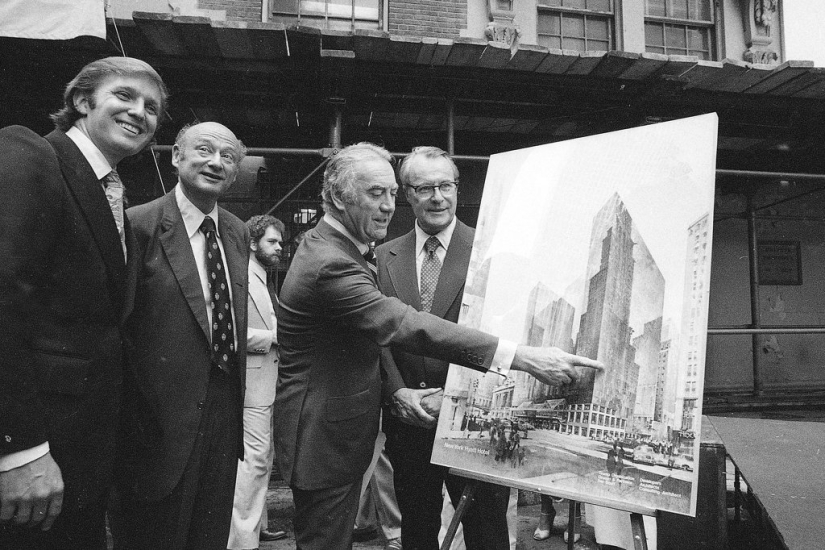
After that, Trump went to the bank for financing. He claimed that he had received tax breaks from the government, but all attempts were unsuccessful. Then Donald used his father's connections and was able to get these benefits. He even had to forge documents, but in the end, he got what he wanted. Thus, in 1980, the Grand Hyatt New York, one of the most famous hotels in New York, appeared on 42nd Street.
In 1983, Donald Trump commissioned perhaps his most famous project, the grandiose 68-story Trump Tower skyscraper. Donald was not afraid to take risks. He built buildings, named them after himself, and turned them into symbols of success. Trump Tower, Trump Plaza, and copies of the Taj Mahal in Atlantic City all became part of his empire. But Donald went beyond real estate: he became a reality TV star, the owner of the Miss Universe contest, and, finally, a politician.
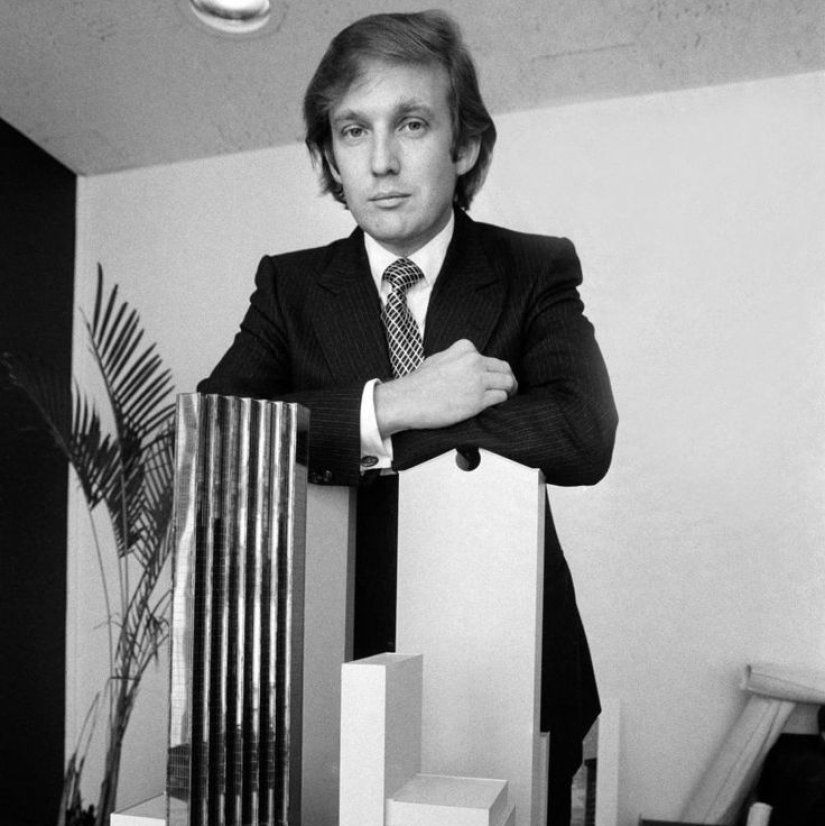
Donald Trump worked hard to create his image, collaborating with leading publications. Journalists helped shape the image of a successful person and a billionaire who achieved everything himself. The businessman often personally called the Wall Street Journal, the New York Times and Forbes to share this or that story about himself.
Later, popularity became a support for Trump during difficult periods. He made money on literally everything: interviews, books, TV shows, filming, even souvenirs. Having become the US president in 2016, Trump finally turned into a global figure, combining his grandfather's ambitions, his father's business acumen and his own talent for self-promotion.
His tenure in the White House was one of the most talked about in the country’s recent history. And yet, after a pause, Trump won the next presidential election. The Trump family legacy continues to evolve. Donald actively involves his eldest children: Ivanka, Donald Jr., Eric, and Tiffany. Some run businesses, some help with their father’s political career. It is believed that in the future, the Trumps may again find themselves in the White House — with a different lineup, a new face, but still with the same familiar brand.
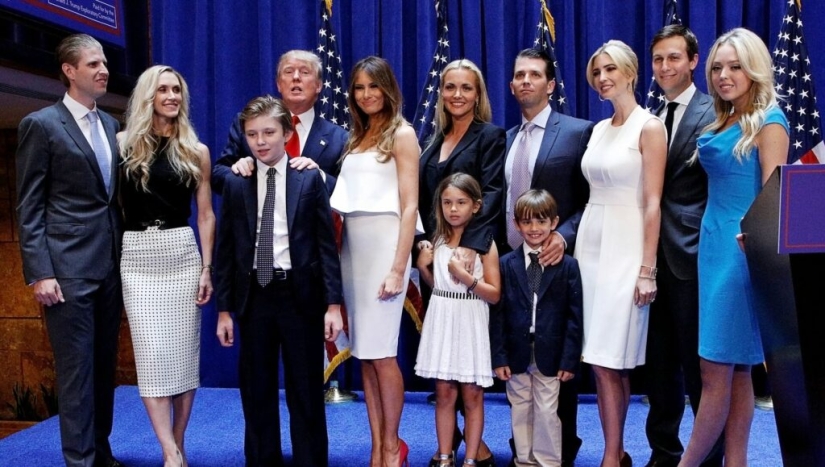
The Trump family story is a true family epic about risk, entrepreneurship, ambition and self-creation. From a German village to the presidency, a path full of bright turns and controversial decisions. What do you think is more important in a success story: a lucky coincidence, personal qualities or family heritage? Share your opinion in the comments - it will be interesting to hear your point of view.
Recent articles

It's high time to admit that this whole hipster idea has gone too far. The concept has become so popular that even restaurants have ...

There is a perception that people only use 10% of their brain potential. But the heroes of our review, apparently, found a way to ...

New Year's is a time to surprise and delight loved ones not only with gifts but also with a unique presentation of the holiday ...